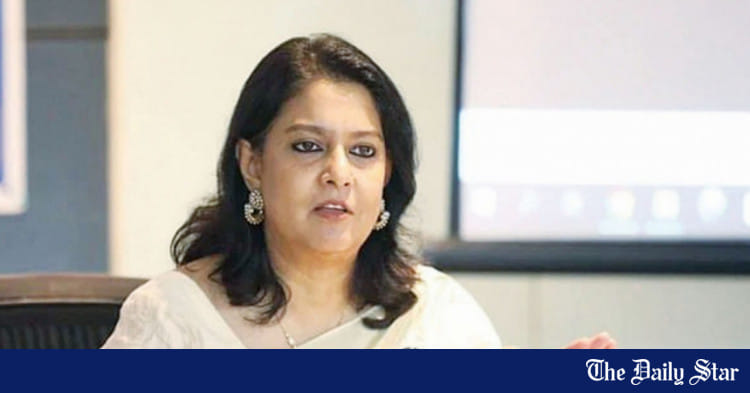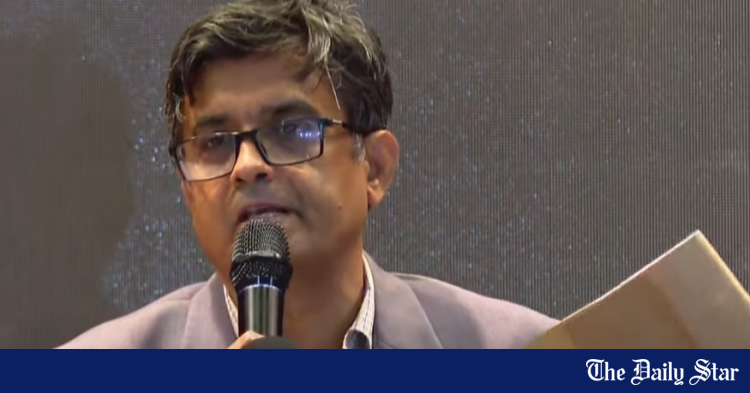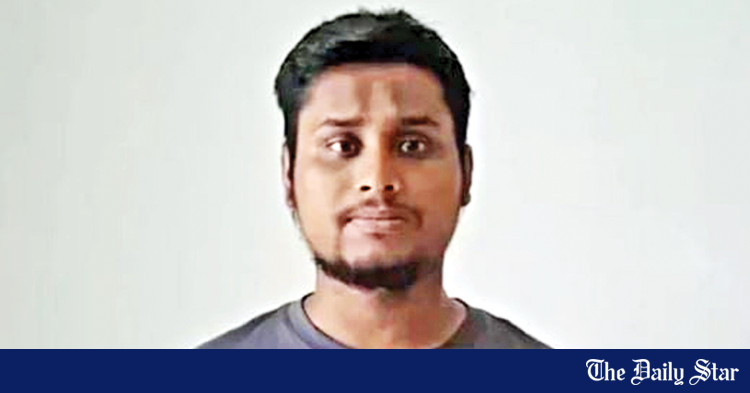Saif
Senior Member
- Joined
- Jan 24, 2024
- Messages
- 17,262
- Likes
- 8,334
- Nation

- Residence

- Axis Group


ICT bans publication of Hasina’s hate speech
The International Crimes Tribunal on Thursday asked the government to ban the broadcasting and publication of any ‘hate speech’ or ‘incitement’ allegedly made by deposed prime minister Sheikh Hasina...
 www.newagebd.net
www.newagebd.net
ICT bans publication of Hasina’s hate speech
M Moneruzzaman 05 December, 2024, 14:21

The International Crimes Tribunal on Thursday asked the government to ban the broadcasting and publication of any ‘hate speech’ or ‘incitement’ allegedly made by deposed prime minister Sheikh Hasina, who fled to India amid the student-people uprising on August 5.
The order followed Hasina’s implication in a filed on charges of crimes against humanity for over 1,500 murders and scores of injuries in indiscriminate firing, torture and other atrocities during the July-August uprising.
The tribunal of Justice Md Golam Mortuza Mozumder, Justice Md Shofiul Alam Mahmood and retired district judge Md Mohitul Haq Anam Chowdhury passed the order after hearing a petition filed by chief prosecutor Md Tajul Islam.
The tribunal asked its registrar to immediately notify the secretaries of the ministries of information and broadcasting and information and communication technology as well as the Bangladesh Telecommunication Regulatory Commission chairman to enforce the order.
It also asked the respondents to ensure the removal of all inflammatory content linked to Hasina from print, electronic and social media platforms.
The tribunal also took note of reported leaked telephone conversations between Hasina, also the Awami League president, and her party leaders that went viral on social media and were widely circulated in the press.
In the leaked conversations, Hasina reportedly asked AL leaders to hold rallies displaying images of US president-elect Donald Trump and urged her supporters to retaliate against those who reportedly attacked the homes of AL members.
Prosecutor Tamim Gazi Monwar Hossain argued that these statements met the criteria for hate speech as outlined in the United Nations’ Rabat Plan of Action.
The framework proposes a six-point threshold test, considers elements such as the context, speaker, intent, content, reach, and likelihood, including imminence, to determine whether an expression qualifies as criminal incitement.
Tamim emphasised that Hasina’s statements clearly fell within the parameters of incitement as defined by the Rabat Principles.
Tamim warned that Hasina’s rhetoric could obstruct the ongoing investigation into allegations of crimes against humanity and jeopardise the safety of witnesses and victims connected to the case.
The case accuses Hasina and her affiliates of orchestrating violence during the July-August movement, resulting in widespread deaths, injuries, and destruction.
The prosecution filed the application seeking ban on publication of Hasina’s speech following an amendment to section 23A of the amended International Crimes (Tribunals) Act ICT mandating tribunals to ‘take all necessary measures’ to ensure the safety, security, and well-being of witnesses providing testimony or evidence in proceedings under the act.
Section 23(2)(B) further empowers the tribunals to ‘order any protective measures deemed necessary to safeguard victims,’ either on their own initiative or upon a request from the prosecution or the victims.
On November 12, the tribunal directed the inspector general of police to request the Interpol to issue red notices for the arrest of Hasina and several of her associates.
Hasina, along with 46 cabinet members, party leaders and associates, faces arrest orders issued by the tribunal on October 17.
Chief prosecutor Md Tajul Islam informed the tribunal that steps were under way to secure Interpol assistance and a red notice would be sent to Hasina.
M Moneruzzaman 05 December, 2024, 14:21
The International Crimes Tribunal on Thursday asked the government to ban the broadcasting and publication of any ‘hate speech’ or ‘incitement’ allegedly made by deposed prime minister Sheikh Hasina, who fled to India amid the student-people uprising on August 5.
The order followed Hasina’s implication in a filed on charges of crimes against humanity for over 1,500 murders and scores of injuries in indiscriminate firing, torture and other atrocities during the July-August uprising.
The tribunal of Justice Md Golam Mortuza Mozumder, Justice Md Shofiul Alam Mahmood and retired district judge Md Mohitul Haq Anam Chowdhury passed the order after hearing a petition filed by chief prosecutor Md Tajul Islam.
The tribunal asked its registrar to immediately notify the secretaries of the ministries of information and broadcasting and information and communication technology as well as the Bangladesh Telecommunication Regulatory Commission chairman to enforce the order.
It also asked the respondents to ensure the removal of all inflammatory content linked to Hasina from print, electronic and social media platforms.
The tribunal also took note of reported leaked telephone conversations between Hasina, also the Awami League president, and her party leaders that went viral on social media and were widely circulated in the press.
In the leaked conversations, Hasina reportedly asked AL leaders to hold rallies displaying images of US president-elect Donald Trump and urged her supporters to retaliate against those who reportedly attacked the homes of AL members.
Prosecutor Tamim Gazi Monwar Hossain argued that these statements met the criteria for hate speech as outlined in the United Nations’ Rabat Plan of Action.
The framework proposes a six-point threshold test, considers elements such as the context, speaker, intent, content, reach, and likelihood, including imminence, to determine whether an expression qualifies as criminal incitement.
Tamim emphasised that Hasina’s statements clearly fell within the parameters of incitement as defined by the Rabat Principles.
Tamim warned that Hasina’s rhetoric could obstruct the ongoing investigation into allegations of crimes against humanity and jeopardise the safety of witnesses and victims connected to the case.
The case accuses Hasina and her affiliates of orchestrating violence during the July-August movement, resulting in widespread deaths, injuries, and destruction.
The prosecution filed the application seeking ban on publication of Hasina’s speech following an amendment to section 23A of the amended International Crimes (Tribunals) Act ICT mandating tribunals to ‘take all necessary measures’ to ensure the safety, security, and well-being of witnesses providing testimony or evidence in proceedings under the act.
Section 23(2)(B) further empowers the tribunals to ‘order any protective measures deemed necessary to safeguard victims,’ either on their own initiative or upon a request from the prosecution or the victims.
On November 12, the tribunal directed the inspector general of police to request the Interpol to issue red notices for the arrest of Hasina and several of her associates.
Hasina, along with 46 cabinet members, party leaders and associates, faces arrest orders issued by the tribunal on October 17.
Chief prosecutor Md Tajul Islam informed the tribunal that steps were under way to secure Interpol assistance and a red notice would be sent to Hasina.








































